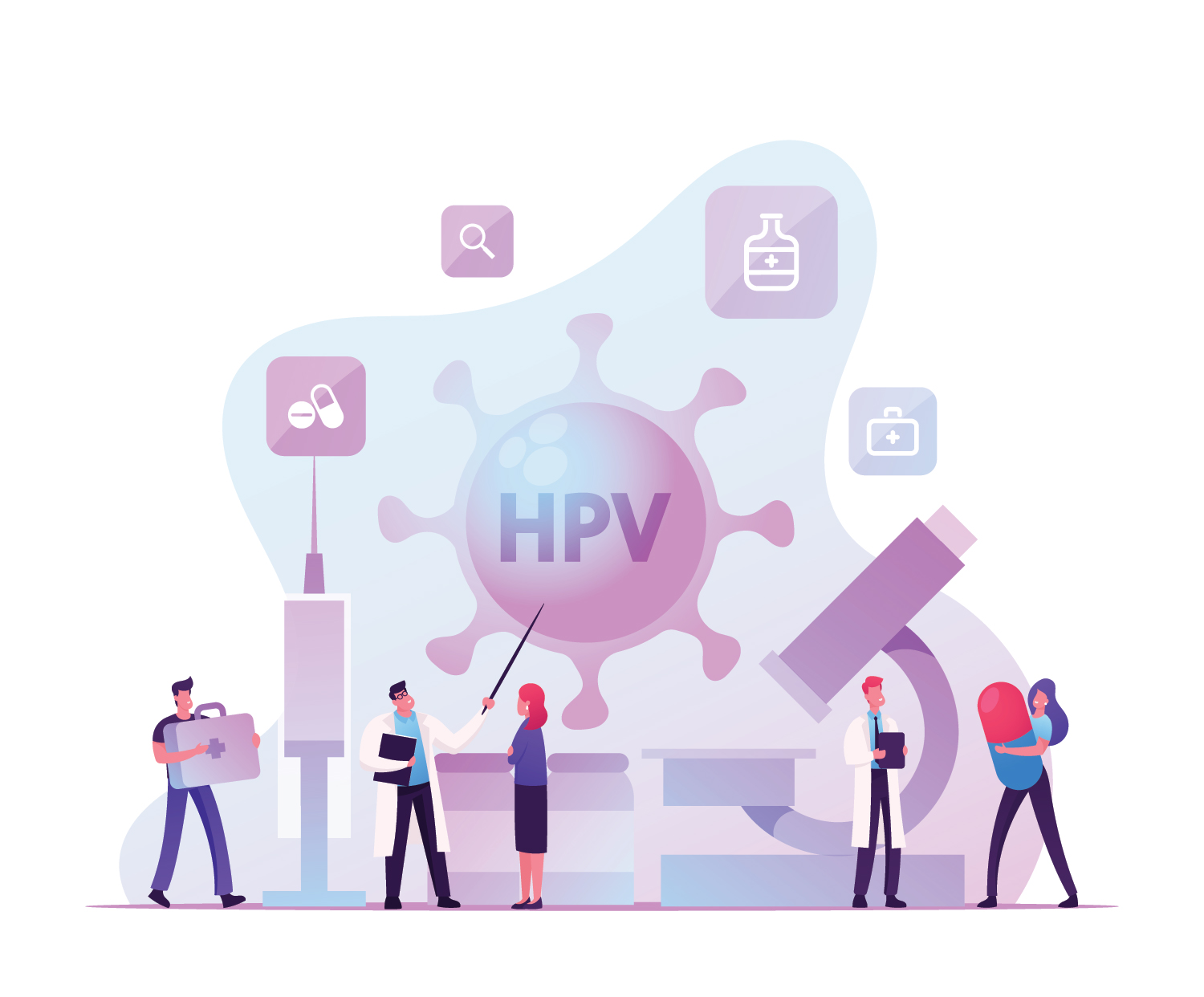What is HPV?
HPV is Human Papilloma Virus and currently the most common sexually transmitted infection.
Nearly every sexually active person has had or will have HPV in their lifetime. The key things to know about HPV are :
- HPV is usually harmless and clears from your body by itself without you ever having symptoms – 9 out of 10 HPV infections go away by themselves within 2 years.
- However, regular monitoring by your gynecologist is important because some types can cause cancer or genital warts.
- HPV is spread by skin-to-skin contact by someone who has HPV (and may not know they have it).
- Cervical cancer is the most common cancer caused by HPV, but it can also cause cancer of the vulva, vagina, penis, anus and throat.
Can HPV be treated?
Unfortunately, there is no treatment for HPV itself, but there are treatments for the symptoms it may cause.
- Low risk types are more likely to cause genital warts which can be treated with either a cream or surgically.
- If you have an abnormal Pap smear, then a colposcopy is done to look more closely at the cervix to see if there are precancerous cells. A biopsy may be done at the time of colposcopy.
- If your biopsy shows precancerous cells, a laser conization or LEEP (Loop
Electrosurgical Excision Procedure) are treatments to remove the abnormal cells. Both are quick, outpatient procedures.
How can I protect myself and others from HPV?
- Protecting yourself from HPV or any sexually transmitted infection requires practicing safe sex.
- Using condoms every time you have sex. Although condoms are not as effective against HPV as they are other STIs, they still can lower your chances of getting HPV.
- Get the HPV vaccine. The FDA has approved Gardasil 9 for ages 9 – 45 and protects you from 9 strains of HPV including the most common strains that cause cancer and genital warts. Gardasil can reduce your risk of HPV-related cancers by over 90% when fully protected with the recommended doses.
How do I talk to my partner about HPV?
While it can be a difficult conversation, being open and honest can reap rewards in building trust. Here are a few things to consider when having this discussion with your partner:
- HPV can occur at any point in a committed, long term relationship and is not an indicator of infidelity. HPV can be introduced in previous relationships and then carried without symptoms for years by either partner.
- If you have been together for a while, your partner probably already has HPV and most likely will clear from their body without symptoms.
- If this is a short term unvaccinated partner, they may benefit from the vaccine to protect themselves from other strains of HPV.
Being regularly screened for HPV and cervical cancer is important if you are between ages 21 -65. Since every individual has a different sexual history, your provider can guide you as to the best plan for screening for your circumstances.








